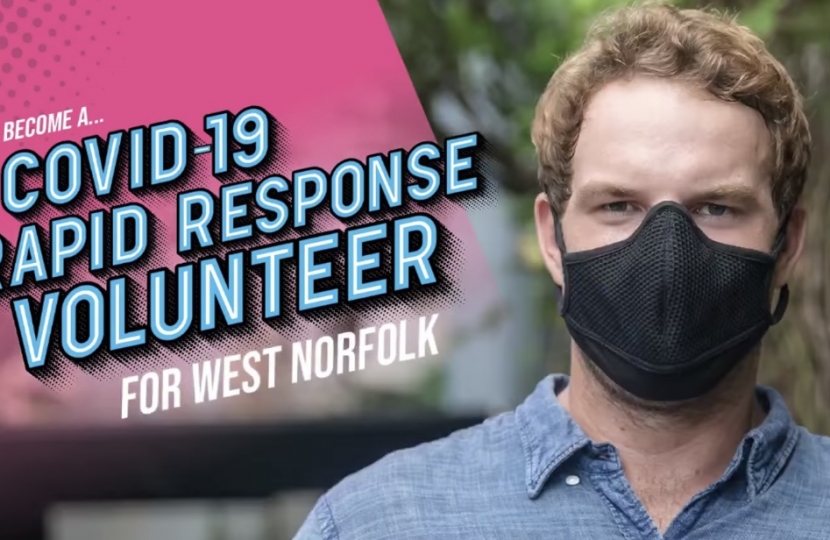
The Covid-19 Response Volunteer Service is currently looking for volunteers until next spring to help us get through the pandemic.
As we face winter 20/21 with a second wave upon us, Covid-19 Response Volunteer Service is hoping for the best but preparing for the worst and is looking to recruit more volunteers, who may be needed in significant numbers possibly at short notice.
Volunteers help those unable to help themselves; they provide telephone friendship and support, report on doorstep welfare checks, and collect and deliver prescription medications and food, as well as other activities to support people's health and wellbeing.
Rapid Response Volunteers can be requested by Norfolk County Council and any of the District Councils at short notice to help support council employees in the community activities that are required as a result of changes in the local risk levels and infection rates.
The Rapid Response volunteer role covers these main activities;
Raising awareness in local communities around key public health messages, providing advice on how long to stay safe, and making sure people are able to self-isolate when asked to do so. This may include leaflet drops or being available and visible in a location to be asked questions.
Community contact tracing and welfare checks - visiting the address of residents with advice and support for those who have tested positive for Covid but who have not engaged with the contact tracing system. Encouraging residents to call is important, and the support that is available to people (financial and volunteer support). This will not require visits within homes and will be a non-support contact, doorstep activity.
Visits such as this are crucial to offer people personal and financial support because some vulnerable people might not be aware that such help is available.
Training of Rapid Response Volunteers;
All Rapid Response volunteers are required to undertake the Volunteer Learning Passport through e-learning for Healthcare website. Training covers the key topics required by volunteers working to support community health, including;
- Data Protection and Confidentiality
- Safeguarding
- Lone Working
- Manual Handling
- Conflict Management
- Use of application and PPE
- Role and task-specific training
Time commitment;
Rapid response shifts will normally be operated twice a day, morning and afternoon. You can commit to doing as many or as few as you feel able.
Currently, volunteers are also needed for the following roles;
- Community support roles- volunteers to make food and medication collections and deliveries, doorstep welfare checks, telephone befriending.
- Healthcare roles- volunteers to support NHS community hospitals, services, and patients, e.g. ward support, drivers, meet and greet, and stock room management.
To find out more or to register to be a volunteer please visit: https://app.betterimpact.com/Application?OrganizationGuid=1d6c5325-6c06…

